#Fatty Liver Disease Treatment
Text
Learn about fatty liver disease, its causes, diagnosis options, and lifestyle changes that can help manage the condition.
#Fatty Liver Disease Treatment#Fatty Liver Disease Specialist#Fatty Liver Disease#Liver Disease treatment#Liver Specialist. Gastroenterologist
0 notes
Text
https://www.kaizengastrocare.com/fatty-liver-disease-treatment-in-pune/
Looking for the best fatty liver disease treatment in Pune? Kaizen Gastro Care expert gastroenterologist Dr. Vikrant Kale and team provide a complete spectrum of treatments ranging from every small liver disease to liver cancer care under one roof. Kaizen Gastro Care is one of the best places for different liver disease treatment in PCMC, Pune which includes alcoholic liver disease, Fatty liver disease, Hepatitis B & Hepatitis C.
#Fatty Liver Disease Treatment#Liver Disease Treatment#Liver Specialist#Liver Cirrhosis treatment#Liver Cancer Treatment#Hepatitis Treatment
0 notes
Text
The liver is an important organ of the human body that plays out various basic capabilities like detoxification, digestion, and protein synthesis.
#liver detox#liver damage#liver disease#world liver day#livermore#liver function test#liver care#fatty liver#liver transplant#liver treatment#liver symptoms
2 notes
·
View notes
Text
NOURISHING YOUR WAY TO RECOVERY: POST-LIVER TRANSPLANT DIET AND NUTRITION
Dr..Anand Khakhar, a renowned hepatologist in India, is widely regarded for expertise in liver diseases, offering exceptional care and innovative treatments to patients nationwide.
#best liver transplant surgeon in gujarat#fatty liver diseases treatment in gujarat#non alcoholic fatty liver disease in gujarat#liver transplant surgeons in gujarat#best kidney transplantation in gujarat#liver transplantation in india#liver transplant specialist in india#pediatric liver transplant specialist in gujarat
0 notes
Text
What are the causes and treatment options for fatty liver disease?
Fatty liver or the process of hepatic steatosis is a pathological condition in which too much fat is stored in liver cells. It is a common condition that lies on a spectrum from mild to severe, and if left untreated can result in liver inflammation, fibrosis, and even liver failure.
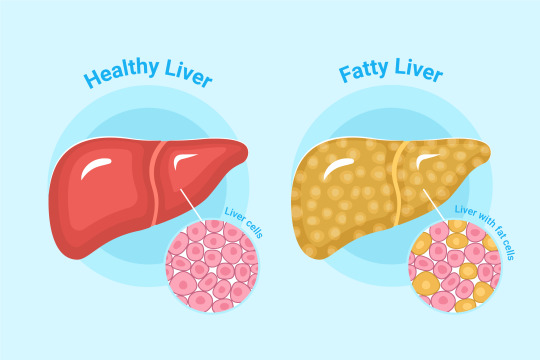
There are two main types of fatty liver disease:
Non-alcoholic Fatty Liver Disease: This type of fatty liver disease occurs in individuals who do not consume excessive amounts of alcohol. It is often associated with obesity, insulin resistance (pre-diabetes or type 2 diabetes), high blood pressure, and high cholesterol levels. Non-alcoholic Fatty Liver Disease is considered the most common liver disorder in Western countries.
Alcoholic Fatty Liver Disease: As the name suggests, this type of fatty liver disease is caused by excessive alcohol consumption. The liver metabolizes alcohol, and chronic alcohol abuse can lead to the accumulation of fat in liver cells. Alcoholic Fatty Liver Disease can progress to more severe forms of liver damage, including alcoholic hepatitis and cirrhosis.
Several factors can contribute to the development of fatty liver disease:
Obesity: Excess body weight, particularly abdominal obesity, is a major risk factor for fatty liver disease. It increases the accumulation of fat in the liver and promotes inflammation.
Insulin Resistance and Diabetes: Insulin resistance, a condition in which cells become resistant to the effects of insulin, can lead to increased fat storage in the liver. Type 2 diabetes, which is often associated with insulin resistance, is also a risk factor for fatty liver disease.
High Levels of Triglycerides: Elevated levels of triglycerides (a type of fat) in the blood can contribute to the accumulation of fat in the liver.
Metabolic Syndrome: Metabolic syndrome is a cluster of conditions that includes obesity, high blood pressure, high blood sugar, and abnormal cholesterol levels. Individuals with metabolic syndrome are at increased risk of developing fatty liver disease.
Certain Medications: Some medications, such as corticosteroids, tamoxifen, and methotrexate, can contribute to the development of fatty liver disease.
Genetic Factors: Genetic factors may predispose some individuals to develop fatty liver disease, although the role of genetics in its development is not fully understood.
Rapid Weight Loss: Rapid weight loss, particularly through crash dieting or bariatric surgery, can lead to the mobilization of fat stores from peripheral tissues, including the liver, resulting in fatty liver disease.
Fatty liver disease is a complicated condition which development involves multifactorial etiology including genetic, metabolic, and lifestyle factors. Therefore, the development of fatty liver a disease is often caused by interplay of different contributing factors
The treatment options for fatty liver disease typically focus on addressing the underlying causes of the condition, reducing liver inflammation, and preventing the progression of liver damage.
Here are some common treatment approaches:
Lifestyle Changes:
Weight Loss: For individuals with non-alcoholic fatty liver disease (NAFLD) who are overweight or obese, gradual and sustained weight loss through a combination of diet and exercise is often recommended. Losing as little as 5-10% of body weight can significantly improve liver health and reduce fat accumulation in the liver.
Healthy Diet: Adopting a balanced and nutritious diet low in saturated fats, refined sugars, and processed foods can help reduce liver fat and improve overall metabolic health. A diet rich in fruits, vegetables, whole grains, lean proteins, and healthy fats (such as those found in fish, nuts, and olive oil) is recommended.
Regular Exercise: Engaging in regular physical activity, such as brisk walking, jogging, swimming, or cycling, can help burn excess fat, improve insulin sensitivity, and promote overall liver health.
Medications:
Insulin Sensitizers: Medications such as pioglitazone or metformin, which improve insulin sensitivity, may be prescribed to individuals with non-alcoholic fatty liver disease (NAFLD) and insulin resistance or diabetes. These medications can help reduce liver fat and inflammation.
Cholesterol-Lowering Medications: Statin medications may be prescribed to individuals with fatty liver disease and high cholesterol levels to help reduce the risk of cardiovascular complications.
Antioxidants: Some studies suggest that antioxidants such as vitamin E may benefit individuals with non-alcoholic steatohepatitis (NASH), a more severe form of fatty liver disease. However, the use of vitamin E for this purpose should be carefully monitored by a healthcare provider due to potential side effects.
Management of Underlying Conditions:
Control of Diabetes and Hypertension: Managing underlying conditions such as diabetes and high blood pressure is essential for preventing further liver damage and complications.
Alcohol Moderation or Abstinence: For individuals with alcoholic fatty liver disease (AFLD), reducing or eliminating alcohol consumption is critical to prevent further liver damage.
Regular Monitoring and Follow-Up:
Individuals diagnosed with fatty liver disease should undergo regular monitoring to assess liver function, liver enzymes, and other relevant markers of liver health. This allows healthcare providers to track disease progression, adjust treatment as needed, and intervene promptly if complications arise.
In some cases, individuals with advanced liver disease or complications of fatty liver disease may require specialized care, including referral to hepatologists (liver specialists) or consideration for liver transplantation.
The fatty liver treatment in Bangalore is multifaceted and often involves a combination of lifestyle modifications, medications, and management of underlying conditions. The primary goals of treatment are to improve liver health, prevent disease progression, and reduce the risk of complications.
The topic of liver care is just for your knowledge purposes. If you want to get treatment and a diagnosis for fatty liver disease, you have to contact liver care specialists or visit hospitals.
#liver care#fatty liver disease#fatty liver treatment in Bangalore#Liver Disease Treatment in Bangalore#liver inflammation#liver care hospitals#liver specialists in Bangalore#Fatty Liver
0 notes
Text
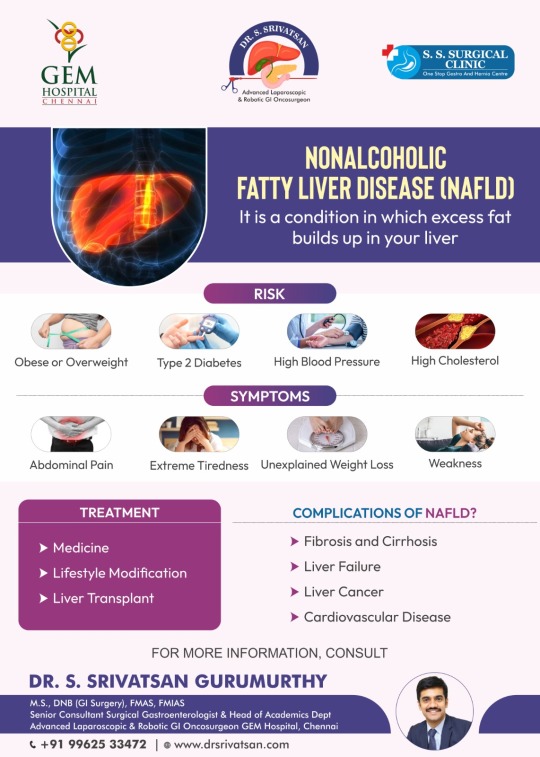
NAFLD: Take Control of Your Liver Health
Learn about Nonalcoholic Fatty Liver Disease (NAFLD), its risks including obesity, type 2 diabetes, and high blood pressure, symptoms like abdominal pain and extreme tiredness, treatment options, complications such as fibrosis and liver cancer, and more. Consult for further details.Consult Today!!!
For more information
Dr. S. Srivatsan Gurumurthy
Senior Consultant Surgical Gastroenterologist & Head of Academics Department and Advanced Laparoscopic & Robotic GI Oncosurgeon
Call: +91 +91 99625 33472
#NAFLD#Nonalcoholic Fatty Liver Disease#Liver Cancer Surgeon in Chennai#Liver Diseases Treatment in Chennai#Liver Transplant Surgery in Chennai
0 notes
Text
Reverse Your Fatty Liver Susan Peters: A Comprehensive Reviews
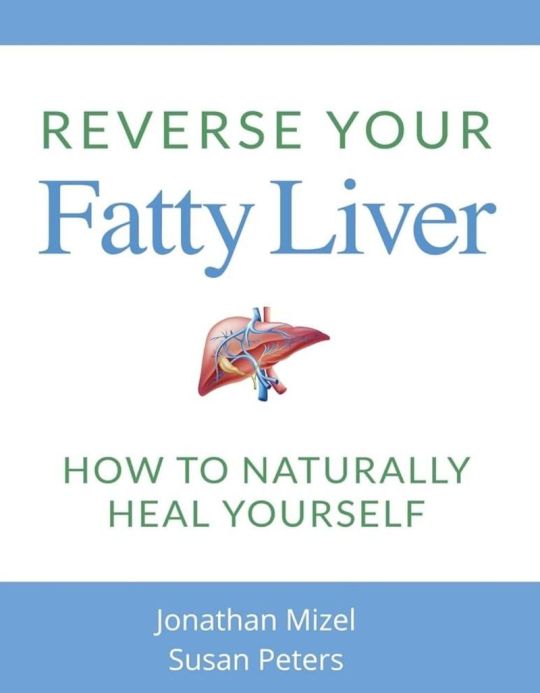
The "Reverse Your Fatty Liver Program," created by Susan Peters, is a digital program designed to help naturally reverse fatty liver disease. Susan Peters, a medical writer and researcher, developed the program after being diagnosed with fatty liver disease herself. The program aims to provide information and resources, including a dietary program, to help individuals reverse the effects of fatty liver disease.
See More about "Reverse Your Fatty Liver" Here!
Program Highlights:
Creator: Susan Peters, a medical writer and researcher.
Development: Susan Peters created the program after her personal experience with fatty liver disease.
Click Here to Download eBook "Reverse Your Fatty Liver" PDF by Susan Peters!
Program Content:
E-Book: The main program is available in digital format.
Updates: Frequent updates are provided by Susan Peters.
Accessibility: Available across various devices.
Benefits of the Program:
Natural removal of liver fat.
Weight loss and restoration of liver functionality.
Improved skin conditions.
Reduction or elimination of symptoms associated with fatty liver disease.
Money-Back Guarantee: Susan Peters offers a 60-day money-back guarantee for those not satisfied with the program.
Full Package: The program includes the main e-book and personal support services, available for a limited time.
Program Effectiveness:
Claims to help individuals feel better in 2-4 weeks.
Addresses symptoms such as fatigue, lack of focus, weight gain, skin breakouts, and poor vision.
Focuses on natural methods to flush liver fat and restore overall health.
Conclusion:
The program emphasizes natural approaches to reversing fatty liver disease and improving overall health. Susan Peters offers a money-back guarantee and personal support services, adding to the credibility of the program. Users are encouraged to follow the program's dietary recommendations and lifestyle tips to achieve the intended results.
Click Here to Download PDF "Reverse Your Fatty Liver" eBook by Susan Peters!
#health & fitness#fatty liver#fatty liver disease#fatty liver treatment in hyderabad#fatty liver causes#fatty liver natural treatment
0 notes
Text
How Endoscopy Treatment Can Help Diagnose and Treat Digestive Disorders
#best gastroenterology treatment in gurgaon#ncr gastro liver clinic Gurgaon#best gastroenterologist in gurgaon#best gastroenterologist in gurugram#gastroenterologist gurgaon#best gastro in gurgaon#gastro in gurgaon#fatty liver disease treatment gurgaon#liver specialist in gurgaon#liver specialist doctor in gurgaon#best herpetologist in gurgaon#bloating treatment gurgaon#ercp in gurgaon#top gastroenterologist in gurgaon#constipation treatment gurgaon#obesity clinics in gurgaon#gall stones treatment in gurgaon#viral hepatitis treatment doctors gurgaon#obesity doctors in gurgaon#acidity treatment Gurgaon#best hepatologist in Gurgaon#acute and chronic pancreatitis treatment Gurgaon#chronic constipation doctors in Gurgaon#bloating treatment Gurgaon#stent doctors in Gurgaon#cirrhosis treatment Gurgaon#ercp in Gurgaon#constipation treatment in Gurgaon#constipation treatment Gurgaon#doctors for obesity in Gurgaon
0 notes
Text
Get effective strategies to reverse fatty liver with Dr. Vikrant Kale's expert guidance. Learn practical tips, lifestyle changes, and personalized approaches for a healthier liver. Take the first step towards optimal liver function and overall well-being.
0 notes
Text
#liver specialist#fatty liver disease treatment#liver disease treatment#gastroenterologist#hepatologist
0 notes
Text
5 Beneficial Foods for Fatty Liver to Heal
5 Beneficial Foods for Fatty Liver to Heal
Introduction
Fatty liver disease, characterized by the accumulation of fat in the liver cells, is becoming increasingly prevalent due to sedentary lifestyles and poor dietary choices. While medical intervention is crucial, dietary modifications play a significant role in managing and even reversing this condition. In this article, we’ll explore five…
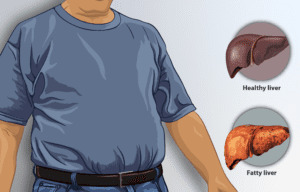
View On WordPress
#alcohol consumption#Antioxidants#beneficial foods#berries#diet#dietary modifications#exercise#fatty fish#Fatty liver disease#inflammation#leafy greens#lifestyle changes#liver fat#liver health#medical treatment#nutrient-rich foods#olive oil#omega-3 fatty acids#oxidative stress#physical activity#polyphenols#reversal#smoking cessation#stress management#supplements#walnuts#weight management#well-balanced diet
0 notes
Text
Common Liver diseases - liver transplant surgery
Although liver disease is stereotypically linked to alcohol or drugs, the truth is that there are over 100 known forms of liver disease caused by a variety of factors. liver transplant surgery.
#best liver transplant surgeon in gujarat#fatty liver diseases treatment in gujarat#liver transplant surgeons in gujarat#best liver transplant surgery in gujarat#best kidney transplantation in gujarat#liver transplantation in india#liver transplant specialist in india
0 notes
Text
Understanding Liver Disease Causes, Symptoms, and Treatments in Bangalore
Liver is an important organ among many involved in providing many vital functions in the body such as detoxification, metabolism and nutrient storage. Nevertheless, several conditions can induce liver disease, therefore it no longer executes all its vital functions. Living in Bangalore and caring about your liver health means that you need to know the reasons, manifestation signs, and existing treatments for the liver diseases.
Understanding Liver Disease:
Liver disorders present a broad spectrum of conditions that damage the liver parenchyma and its capacity. Hepatitis, fatty liver disease, cirrhosis, and liver cancer are the most known liver diseases. Such conditions can be caused by viral infections, alcohol abuse, obesity, autoimmune disorders, genetic factors, and exposure to toxins and medications to begin with.
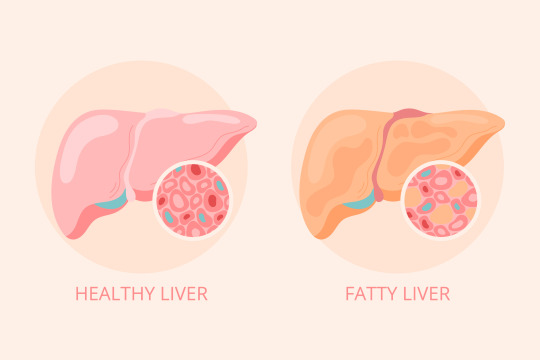
Causes of Liver Disease:
Viral Hepatitis: Hepatitis viruses, including hepatitis A, B, and C, can cause inflammation and damage to the liver. These viruses are typically transmitted through contaminated food or water (hepatitis A), blood or bodily fluids (hepatitis B and C), or sexual contact.
Alcohol Abuse: Excessive alcohol consumption over time can lead to alcoholic liver disease, characterized by inflammation, fatty deposits, and scarring of the liver (cirrhosis). Alcohol-related liver disease is a significant cause of liver-related morbidity and mortality worldwide.
Non-Alcoholic Fatty Liver Disease (NAFLD): Non-Alcoholic Fatty Liver Disease is a condition characterized by the accumulation of fat in the liver, not caused by excessive alcohol consumption. Risk factors for Non-Alcoholic Fatty Liver Disease include obesity, diabetes, high cholesterol, and metabolic syndrome.
Autoimmune Liver Diseases: Conditions such as autoimmune hepatitis, primary biliary cholangitis, and primary sclerosing cholangitis occur when the body's immune system mistakenly attacks the liver, leading to inflammation and damage.
Genetic Disorders: Inherited liver diseases, such as hemochromatosis, Wilson's disease, and alpha-1 antitrypsin deficiency, can affect liver function and lead to complications if left untreated.
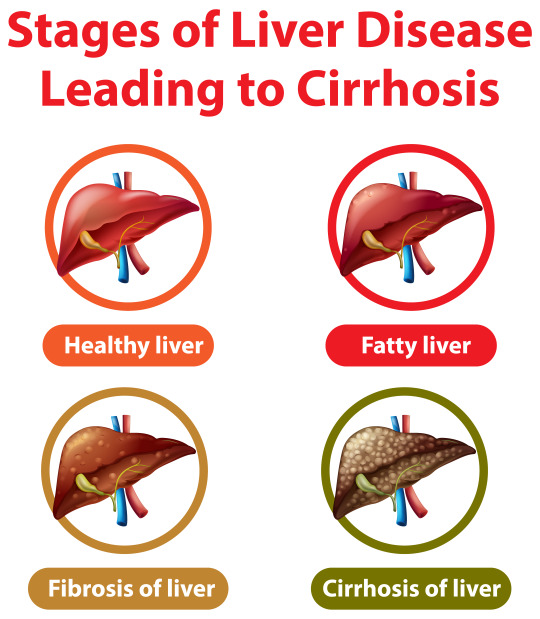
Symptoms of Liver Disease:
The symptoms of liver disease can vary depending on the underlying cause and severity of the condition.
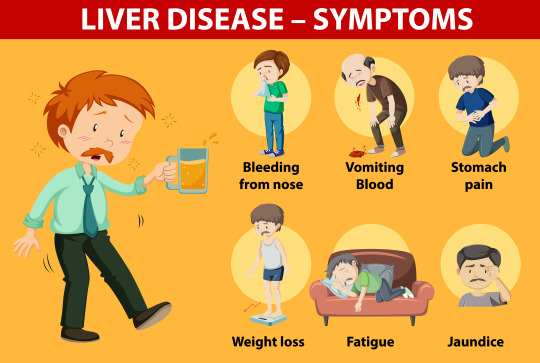
Common symptoms may include:
Fatigue
Jaundice (yellowing of the skin and eyes)
Abdominal pain or swelling
Nausea and vomiting
Loss of appetite
Unexplained weight loss
Dark urine
Pale-colored stools
Easy bruising or bleeding
Swelling in the legs and ankles (edema)
Mental confusion or cognitive impairment
Seeking Treatment in Bangalore:
Fortunately, Bangalore boasts world-class healthcare facilities and a network of experienced hepatologists and gastroenterologists specializing in liver disease diagnosis and management. If you're experiencing symptoms of liver disease or have concerns about your liver health, seeking prompt medical attention is crucial.
Diagnostic Tests:
Upon consultation with a healthcare provider, diagnostic tests may be performed to evaluate liver function and identify the underlying cause of liver disease. These tests may include blood tests to assess liver enzyme levels, imaging studies such as ultrasound or MRI, and liver biopsy for tissue analysis.
Treatment Options:
Lifestyle Modifications: For certain liver diseases, lifestyle changes such as abstaining from alcohol, adopting a healthy diet, maintaining a healthy weight, and exercising regularly can help slow disease progression and improve liver health.
Medications: Depending on the underlying cause of liver disease, medications may be prescribed to manage symptoms, reduce inflammation, or treat underlying infections. In the case of viral hepatitis, antiviral medications may be used to suppress viral replication and prevent liver damage.
Liver Transplantation: In advanced cases of liver disease, such as end-stage liver failure or liver cancer, liver transplantation may be considered as a life-saving treatment option. Bangalore is home to reputable transplant centers offering state-of-the-art surgical procedures and post-transplant care.
Supportive Therapies: Additional supportive therapies, such as nutritional counseling, vitamin supplementation, and management of complications like ascites or hepatic encephalopathy, may be recommended to improve quality of life and overall well-being.
Empowering Patients Through Education and Support:
Living with liver disease can be challenging, but patients in Bangalore have access to a supportive network of healthcare professionals, patient advocacy groups, and educational resources. These resources can provide valuable information, emotional support, and practical guidance to help patients navigate their liver disease journey with confidence and resilience.
Diagnosed with liver disease treatment in Bangalore will be easily accessible, due to the city's advanced infrastructure for healthcare and highly skilled personnel. Through the realization of the causative factors, recognition of symptoms and prompt medical treatment, the individuals would be able to respond to the advancement of liver health and possibly subsidize the influence of liver disease on their lives. Patients in Bangalore have a secure platform to practice a healthy life or even medical treatments and transplant options when they require such care and support at any point of the way If you are suffering from the signs of liver disease or your loved one is showing them, do not hesitate reaching a health care provider in Bangalore to have a personal evaluation and get treatment. First and foremost, your liver health matters, and with appropriate care and support, it is possible to take back your life and enhance your general well-being.
So for the sake of studies, these details are for educational purposes only. If you have to get engagements about diagnoses and surgeries, you can speak first at the hospitals or the clinics by yourself from specialists.
#Hepatitis b treatment in Bangalore#Chronic Hepatitis b treatment in Bangalore#Hepatitis C treatment in Bangalore#Hepatitis A treatment in Bangalore#Hepatitis E treatment in Bangalore#fatty liver treatment in Bangalore#Liver inflammation treatment in Bangalore#Liver disease treatment in Bangalore#Liver#hepatitis#livercare#clinics#hospitals
0 notes
Text
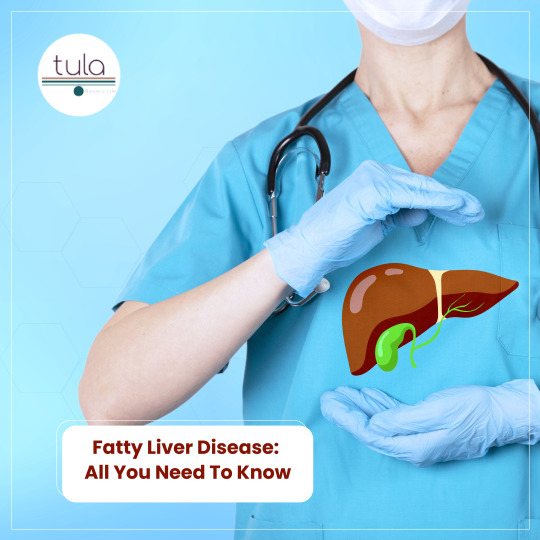
Investigate the holistic remedies and underlying causes of fatty liver in order to improve liver health. Discover the ways in which Tula Wellness Hub can assist you in reversing obese liver.
To Read More👇:
https://tulahealth.in/blogs/fatty-liver-causes-prevalence-treatment
#health and wellness#wellbeing#yoga#nutrition#healthy habits#intermittent fasti#healthy#fat loss#fatty liver treatment in hyderabad#fatty liver disease#wellness#harmonal imbalance
0 notes
Text
Meta Description: Learn about the common signs, diagnosis methods, available treatments, and the impact of fatty liver disease on life expectancy in this comprehensive guide.
#gastroenterologist#endoscopy#celiac disease#hepatitis#digestive health#Fatty liver disease#Hepatic steatosis#Signs of fatty liver disease#Fatty liver disease diagnosis#Fatty liver disease treatments#Liver health#Liver function tests#Liver biopsy#Liver inflammation#Liver imaging#Liver complications#Liver transplantation#Liver fibrosis#Liver cirrhosis
0 notes